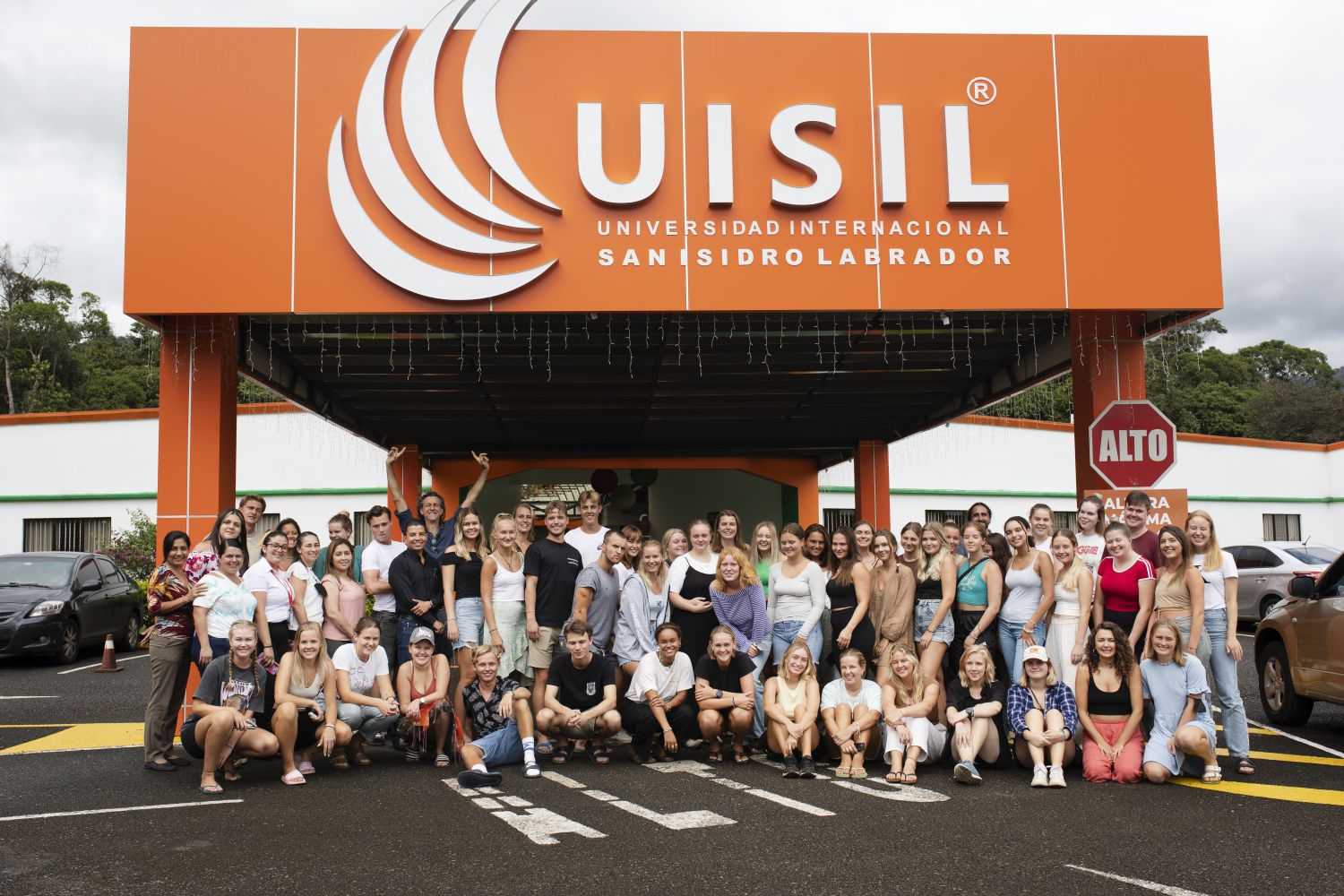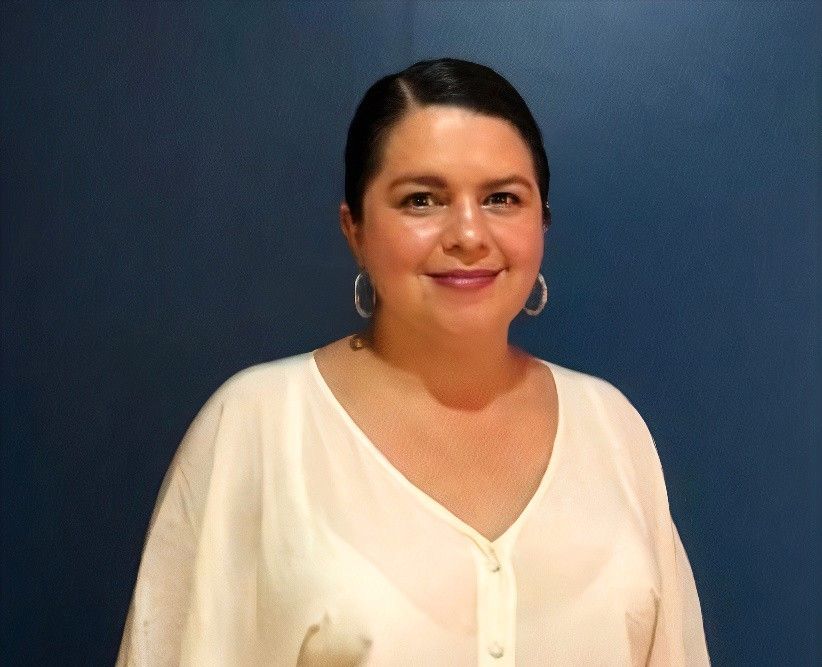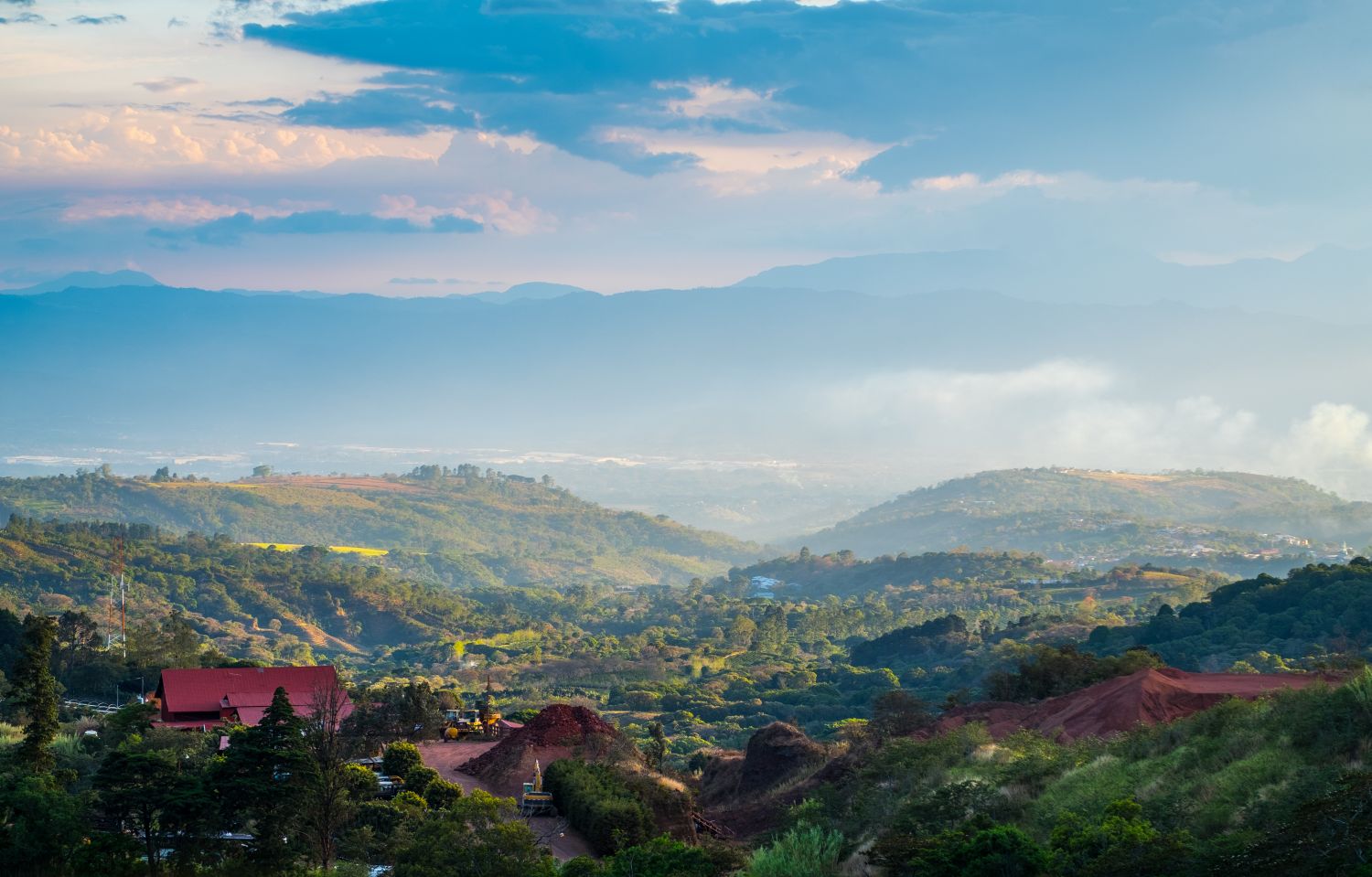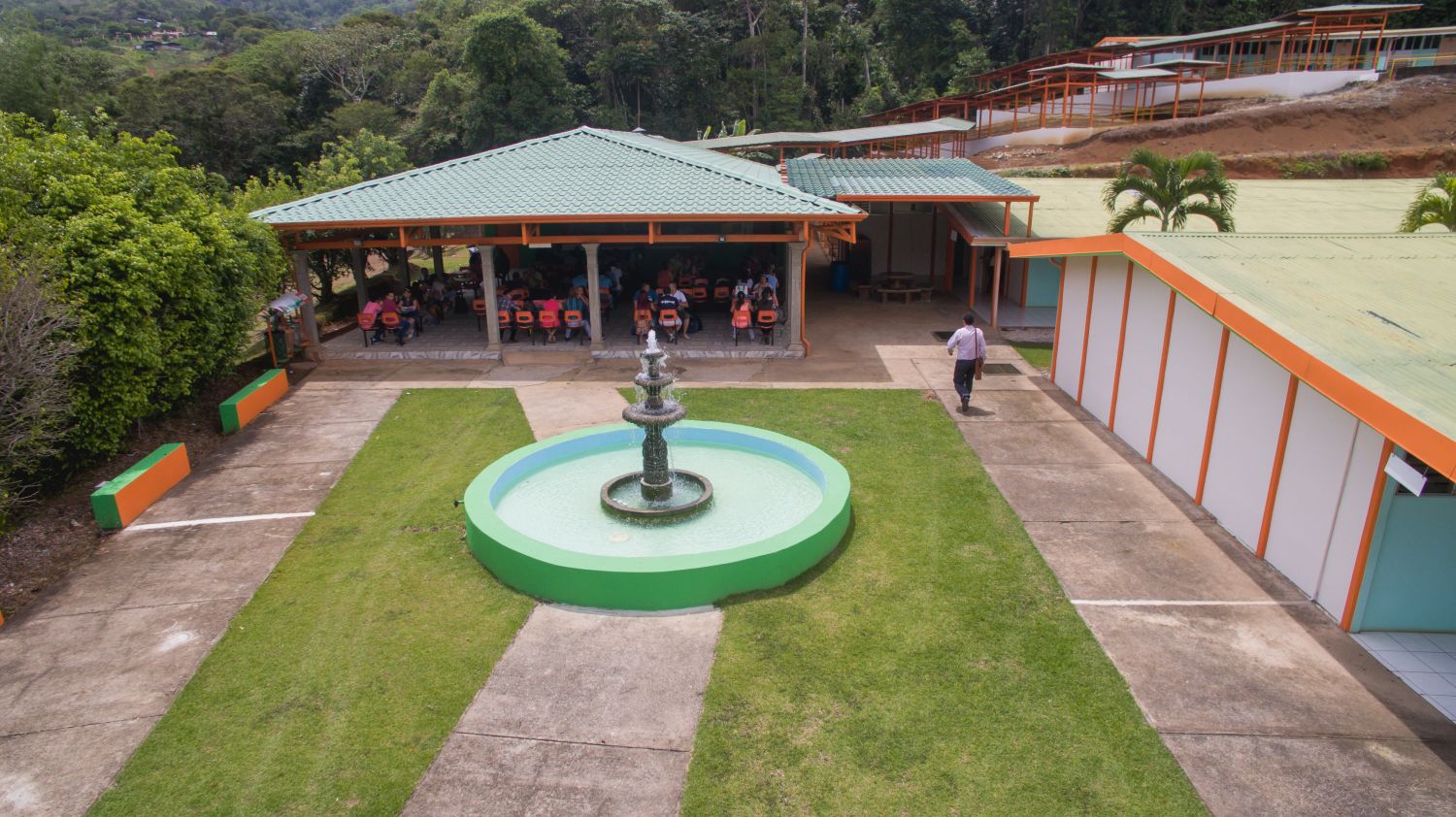Spanish in Costa Rica
Study location: San Isidro, Costa Rica
Programme facts
-

- Duration: One semester
- Semester: Spring/autumn
- Credits: 30 ECTS equivalent
- Examination: Examination in Costa Rica
- Programme fee: 7500 euro (6500 excl. accommodation)
- State loans: Yes, in most European countries
- Includes: Accommodation
- Language of instruction: English/Spanish
- Academic prerequisitions: University eligibility
Spanish
When you learn Spanish in a Spanish speaking country the course literature and the use of the new language is a part of everyday life. With a little initiative and determination, you learn to speak the language fluently.
Seminar teaching is done in small groups and led by faculty from the university in Costa Rica. This is organized so that the students can practice the language both orally and in writing. As part of the course you will also visit local organizations.
Grammar classes are given both in groups and lectures.
The most important part of the study is probably the time you spend to get into Costa Rican society and the everyday conversations with the people around you.
We help you to choose the level of Spanish
We offer Spanish courses on three different levels in Costa Rica:
Beginner - Spanish 0
Intermediate - Spanish 1
Advanced - Spanish 2


Interview with Spanish teacher Yilliam Valverde
On the first day at UISIL, students get to know the facilities and are welcomed with a welcome activity that includes typical (traditional) dances, and popular dances such as cumbia and Creole swing, among others. The next day they will experience a welcome party with Latin music. So the first moments in our program are full of joy and cultural entertainment.
Sustainability and Conservation in Costa Rica
Spanish makes up 3/4 of the semester. In addition you study a course Sustainability and conservation, to make a full time semester:
Exemplary policies and practices Based on theory and field experiences, students will analyse how to achieve long-term sustainability through policies and practices which focus on climate change mitigation; protection and restoration of ecosystems, and the enablement of local businesses to operate profitably in the present while envisioning a more eco-friendly future. Costa Rica’s environmental credentials are extraordinary. Being located within a biodiversity hotspot area, this nation has adopted one of the most consistent and ambitious plans to achieve a zero net emissions economy by 2050, in line with the Paris Climate Change Agreement. Already, more than 95 percent of Costa Rican energy is produced from renewable sources, and its forest cover now stands at more than 53 percent of its territory, after having reverted decades of deforestation. This background places Costa Rica as the perfect arena to learn about sustainability while exploring its impressive biodiversity.

Host family and student accommodation
11 out of 16 weeks everyone lives in a shared house with other Scandinavian students.
Included in the tuition fee is also a 5-week stay with a host family near the university. Here you live with 1 to 2 other students and breakfast is included. Our experience is that you learn a lot of extra Spanish during such a stay while also gaining a unique insight into the Costa Rican culture. Staying with a host family is of course voluntary.
The host families are organized by the women-led foundation ASOFEQUE (Asociación Femenina Quebradas) which focuses on circular and solidarity economy. One of their projects is the FUDEBIOL Reforestation project where you will also have an overnight stay. FUDEBIOL is, among other things, responsible for the forest where San Isidro's drinking water springs from.
Full academic year?
Would you like to take a full academic year with Spanish, you can continue on the next level in Costa Rica, or you can use the time between the semesters to practice Spanish while back packing your way through Latin America to Argentina where you continue the Spanish studies.
The structure of the semester
- Self-study period (4 weeks): Before you travel to Costa Rica, you are expected to get acquainted with the subject and to write a short assignment.
- The main period (16 weeks): Consist of four months of lectures, field trips, seminars, written assignments, oral and written exams in Costa Rica.
The students
Students are recruited mainly from Northern Europe. We also have Costa Rican students in the Latin American Literature course.
Students come from different backgrounds, both academically, professionally and personally, to the benefit of interesting discussions. About one third of the students come directly from upper secondary school, one third are in their early bachelor degree, and the last third are seasoned students.

Relevance
Spanish is the largest mother tongue language in the world, the second largest second language and the third most used language on the internet. You will not regret that you learned a language spoken by 500 million people.
The application process
To apply for the courses, you must be eligible for university training.
Fill in the application form. If there are still places available, we will send you an offer with an invoice for the deposit of 250 Euro. By paying the deposit you confirm your place on the programme. Leading up to the start of the programme we will keep you informed about the preparations for travel and studies.
To apply for the courses you must be eligible for university training.
Fill in the application form. If there are still places available we will send you an offer with an invoice for the deposit of 250 Euro. By paying the deposit you confirm your place on the programme. Leading up to the start of the programme we will keep you informed about the preparations for travel and studies.
Why study in Costa Rica?
- You can practice your Spanish as much as you want
- Credits that can be included in your bachelor's degree
- Additional points for Coordinating admission
- You get to experience living in a Latin American country
- Fantastic trips and experiences
- You feel that you can master new knowledge and new environments
- Pleasant housing together with fellow students
- Shared lunch included three days per week
- Good lecturers
- Personal and group follow-up and guidance
- Interesting excursions where experiences bring the books to life
- Local staff who give you security and support
- Voluntary activities, typically sports, yoga, film, dance etc.
- Possibility of voluntary work
- Relevant experience for international working life
- Simple application process and good facilitation
- Desirable expertise in Latin America
- You make new friends with a different background to your own
- You acknowledge that Norway is a local community with a distinctive culture
- The curriculum comes closer to your own experiences
- And much more...